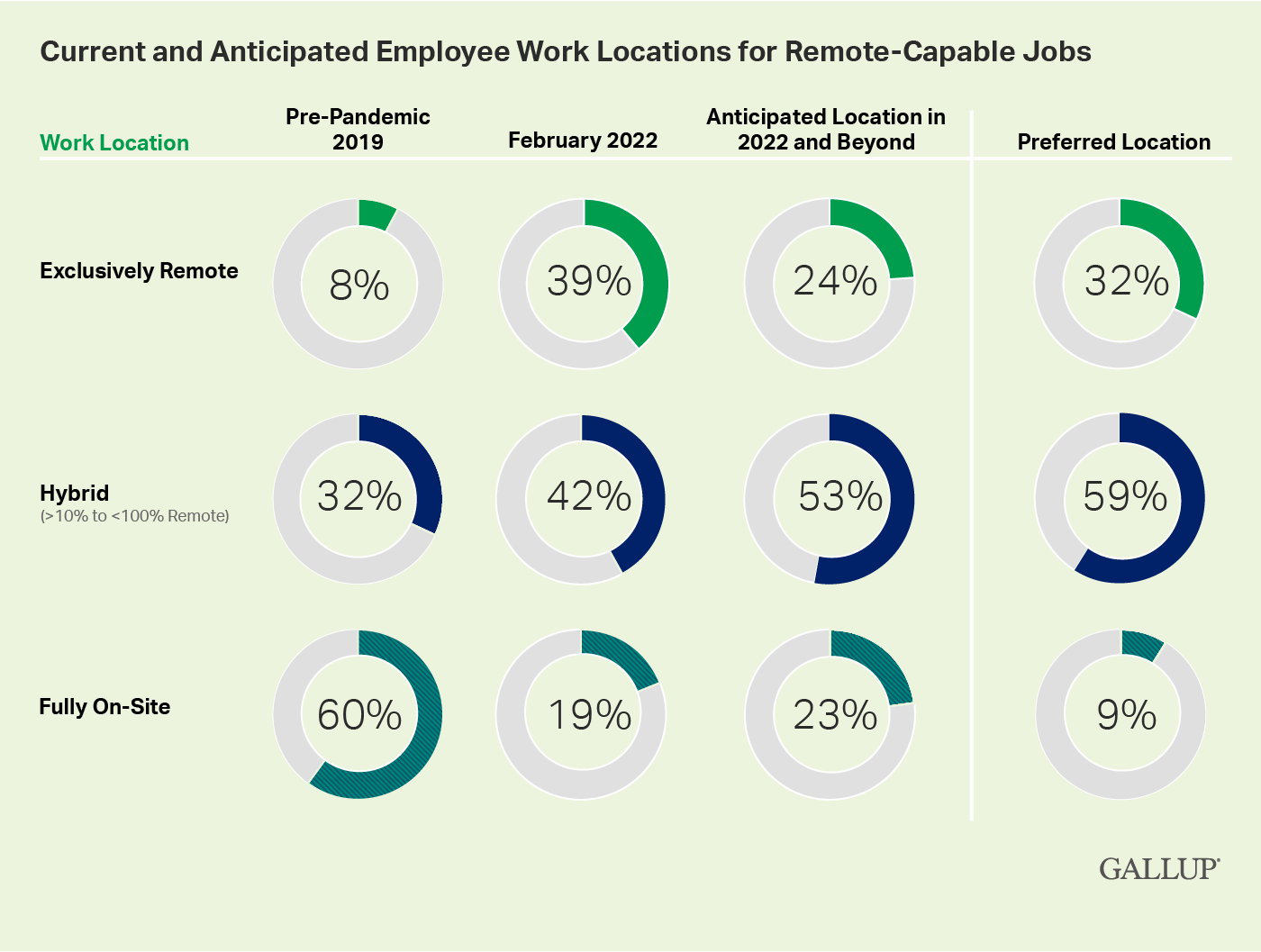Over two years since the start of the Coronavirus Pandemic, we have started to have some semblance of normalcy. Though things are vastly different today than they were at the beginning of the Pandemic - we have adjusted, as humans do.
Human resource teams have gone back to the drawing board, hoping to attract top talent from across the globe, and worked to ensure that they don't lose top talent due to unfavorable work conditions. If you didn't hear, employees in the United States and beyond started somewhat of revolution during the Pandemic - resigning in droves.
Leading to what some experts deemed the great resignation - the move prompted some companies to implement a four-day workweek, hoping to satisfy employees who cited feeling overworked, undervalued, etc. But it isn't enough to merely pacify fed-up employees who now expect more from their employers than at any other time in recent history.
And they have a lot of bargaining power at this point as record skilled labor shortages have gotten reported during this time. If companies don't have skilled workers qualified to pull off the tasks of their job, that firm runs the risk of folding.
So, here's to eliminating pizza parties to show you care; because it doesn't offer anything of value to employees. What does make them feel valued is listening and giving them access to the tools they need to succeed at their job.
There are other elements we'll explore, as well. Ones that shine a light on how employees felt overworked, undervalued, and burnout - according to research conducted by Asana, which found that 58 percent of employees (or one-in-four employees) experienced burnout during the Pandemic.
Show You Care, Reward Loyalty
Nobody (except middle schoolers) wants a pizza party, especially during a time where hybrid work is pretty much the new normal. That could mean; not only figuring out logistics to ensure everyone gets pizza. It could mean you require an employee to come into the office when they might not want that.
There are much better ways to reward employee loyalty, like giving them (the choice) if they want to come into an office or work remotely full-time. Companies like Zoom have already done as much. Other options include improving the current employee compensation package you offer in hopes of better retention rates.
Employees have already proven that they are willing to resign from jobs they are unhappy with; in search of a good fit that makes sense for them and doesn't confine them to a literal petri dish.
Give Employees Access to Collaboration Tools
Collaboration tools like what Microsoft Teams, Slack, Webex, and Asana all build can be invaluable for remote and hybrid employees. They need these tools, in most cases, to pull off what you expect them to deliver in the first place.
This is where not being cheap comes into play. If you expect greatness from employees, spending a little moolah to ensure this is possible; is highly recommended.
Not only do collaboration tools extend a ton of value to employees - but for businesses, they can also help keep sensitive company data private and out of the hands of potential bad actors as they often come equipped with features that include enterprise-grade security, and encryption, and more.
Stop Overworking Employees; They Aren't Robots
Here is another principal element that often gets overlooked. I have lived in a few countries during my life and had the chance to see how various cultures operate when it comes to working.
The value that different cultures place on work - varies from place to place, but in most countries I've ever lived, unfortunately, those folks value overworking. Employees (on a global scale) seem to come to understand their worth and that being overworked is unhealthy/not something they seek.
It now seems that (gone are the days) when employees stay late in the office to prove they are the most dedicated employee. Today, the hours one works are far less important than what gets produced during the time spent working.
Workplace Automation via Slack Flow from Salesforce

Put simply; (productivity) is a far better way to gauge employee effectiveness, etc., not hours. Repetitive tasks are also a burden for employees who work in some fields. Here is where automation comes into play.
More and more UCC providers have built automation into their platforms: hoping to reduce workloads for the knowledge workers like support staff and customer service agents. Like the kind Salesforce and Slack recently unveiled. Automation can act as (a solid) tool to leverage in this instance and can work to ensure employees aren't overworked.
Listening to Employees: Not a Novel Concept
And it could very well go a long way, too. It could lead to implementing new workplace policies that are more inclusive and the kind that make sense to employees, given the status quo of the workplace.
Chances are, they have a lot to say about the goings-on of your organization, and not all of it will be favorable. Some of it will force your hand at actually listening to them and trying to find some common ground. All this, of course, is in (the name of) employee retention and happiness.
Workplace collaboration tool developers like Workplace from Meta have implemented tools that enable employee feedback and the implementation of new policies that stem directly from that employee feedback.
Hybrid/Remote Work is Here to Stay
Since nearly every workplace expert can agree on this notion, it would behoove decision-makers at companies to be more gentle with; the decisions made. They impact employees, workers with real lives, concerns, and yes - even stress.
Flexibility is the 'name of the game' moving forward, and those who fail to hop aboard that train (run the risk) of becoming obsolete due to a lack of skilled employees to do the work.

In a March 2022 Gallup poll, roughly 53% of respondents said: they expect a hybrid arrangement. Twenty-four percent said they expect to work exclusively remotely, something the firm notes: will result in an office environment we have never seen before.
"It will nearly double the number of people who will work remotely at least part of their week (compared with pre-Pandemic numbers)," Gallup noted.



